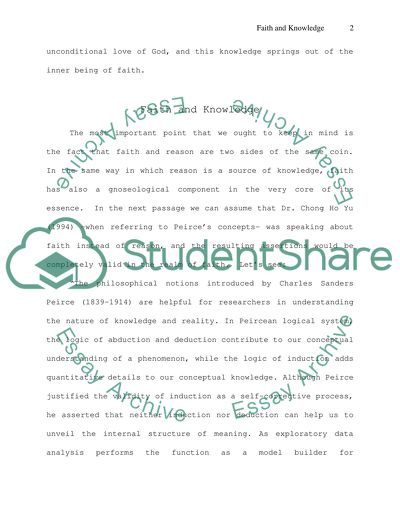Cite this document
(“Faith and Knowledge Essay Example | Topics and Well Written Essays - 1750 words”, n.d.)
Retrieved from https://studentshare.org/religion-and-theology/1530122-faith-and-knowledge
Retrieved from https://studentshare.org/religion-and-theology/1530122-faith-and-knowledge
(Faith and Knowledge Essay Example | Topics and Well Written Essays - 1750 Words)
https://studentshare.org/religion-and-theology/1530122-faith-and-knowledge.
https://studentshare.org/religion-and-theology/1530122-faith-and-knowledge.
“Faith and Knowledge Essay Example | Topics and Well Written Essays - 1750 Words”, n.d. https://studentshare.org/religion-and-theology/1530122-faith-and-knowledge.


